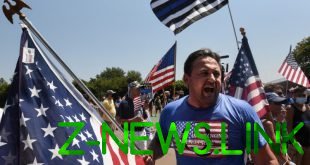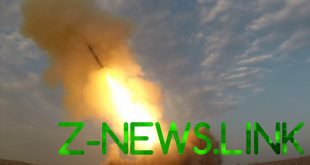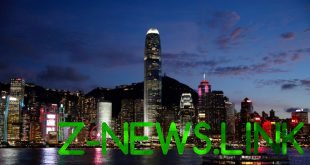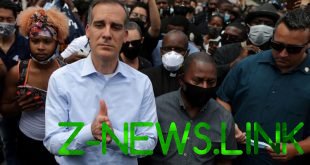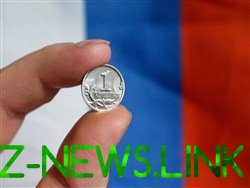
Sergey Guriev, Sergei Aleksashenko and Konstantin Sonin three well — known Russian economist, who went from Russia, answered our questions about the future of the Russian economy and about their lives abroad. Alas, the recipes that would get us out of the economic impasse, according to experts, is not feasible until at least 2024.
The Russian economy lived a block and a half of 2019, and this is enough to say that the year promises to be controversial. On the one hand, strengthened the ruble and raised the price of oil, although this success Russia owes more to coincidence of external circumstances than of the effectiveness of economic policy. On the other – the country is experiencing the consequences of the increase in VAT and other unpopular reforms: the “ideal” inflation of 4% in the past, prices are rising, incomes are falling.
Most people want to know: will they Peter out and continue or all will be adjusted. The authorities truthful answer is to not wait, so we asked for a side view and talked with well-known Russian economists now living abroad and evaluate the situation from the inside. A former rector of the Russian economic school, now the chief economist of the European Bank for reconstruction and development, Professor of Economics at the Paris School of political Sciences Sergei Guriev (left Russia in France in 2013, appeared in the “case of Yukos experts”).
Second speaker — Sergei Aleksashenko, first Deputy Chairman of the Central Bank in 1995-1998, (left Russia in the USA in 2013, and later became involved in the case of the export of cultural values).
The third expert — Konstantin Sonin, Professor at Chicago University and the HSE, has moved to the USA in 2015.
– How do you assess the state of the Russian economy: pain points, possible growth drivers and brakes of development?
Sergei Guriev: In the foreseeable future in the Russian economy is hardly possible macroeconomic crisis. The Federal government is running a surplus, national welfare Fund has accumulated considerable funds, monetary policy keeps inflation under control.
On the other hand, one should not expect rapid economic growth. The Russian economy continues to grow at a rate 1.5-2% per year, more behind the United States, from countries of Central and Eastern Europe and even from Kazakhstan.
The main brakes of development are imperfect institutions, poor investment climate, high level of corruption, isolation from the world economy. Growth potential is associated with human capital, so a key risk is the emigration of educated professionals and entrepreneurs and the degradation of the educational system.
Sergey Aleksashenko: the State of the economy, otherwise, how sad to not be named. Over the past 10 years, the average growth rate of less than 1% per year – it shows that Russia is rapidly lagging behind the rest of the world. A major pain point – the destruction of the institutional environment, which leads to lack of protection of property rights – the cornerstone of any business. I’m talking about the political competition, independent courts, the rule of law and freedom of speech.
Maintaining the current political structure, the continuation of the military-political confrontation with the West and Russia’s aggression against Ukraine are the main brakes of development. The only driver of growth – a creative approach Rosstat, which manages to improve the economic performance during each revision, planned or unplanned, to explain that he can not anyone.
Konstantin Sonin: Russia’s economy is difficult, but not critical situation. The stagnation of production, income, standard of living has been ongoing for ten years: a short recessions are replaced by short climbs, but the average growth rate remains below 1% per year. The main problem of the Russian economy last years is excessive pressure from state authorities. All being restrictive new laws, new by – laws- each law increases production costs and reduces the incentives to innovate. Law enforcement practice has become increasingly hostile to business, and because entrepreneurial activity is a source of economic growth.
– How to change the Russian economy until 2024 — the next political cycle? Is there any hope of a qualitative change in a positive direction?
Sergei Guriev: In the community of economists who analyze the Russian economy, have developed the following consensus. First, acceleration of growth is not possible without institutional reforms. But secondly, most of these significant reforms, no one expects.
Sergei Aleksashenko: When you save those brakes I mentioned above, the Russian economy has no chance of serious change. In the modern world, no country can thrive based solely on our own strength. The key to fast growth – involvement in the global economy.
Import substitution – the road to stalemate in which the country was already in the Soviet times. National projects are the naive belief that public investment, financed through higher taxes, will be more effective than private. In practice it goes like this: the more the state invests, the more billionaires appearing in the country.
Konstantin Sonin: Until 2024 I do not expect any catastrophic decline or exit stancii. To move to growth, you need at least active, aggressive work of the government. Even without an in-depth, serious reforms need to cancel the counter, beating, primarily for poor people, cancel the whole practice of Internet restrictions, because it complicates the adoption and implementation of advanced technologies, to expel the corrupt officials and managers of state-owned companies. Without this exit stagnation will not.
– How is your professional life and career abroad?
Sergei Aleksashenko: on the one hand, I’m interested in a wide range of communication with specialists in different areas, allowing you to broaden your horizons. On the other hand, I’m here in America, “alien” is representative of the country, which is the main geopolitical threat so seriously about a career to speak of.
Konstantin Sonin: going well. In 2015, I became a Professor at the University of Chicago. Since I’ve been a complete and life-long (tenured) Professor and the University of Chicago – the world’s leading center in the field of economic science, it is difficult to wish a better place or a better job. Purely academically higher positions. The challenge for me is to do something interesting and important in science.
– Do you want to return to Russia and that can make you think about returning?
Sergei Guriev: No, I have a very interesting job.
Sergei Aleksashenko: of Course I do, but I can’t even come to visit my parents – I was in the Federal wanted list in the framework of fabricated criminal case. If we talk about long term, then I left because it was impossible to find any work at Home. Therefore, on the return in Russia will be able to think only when in the country life will begin to change, and for me opens some interesting possibilities.
Konstantin Sonin: In the modern world the place of residence – not the most important factor that defines human existence. Although most of the school year, I work in Chicago, a few months a year I spend in Moscow. I still work at the Higher school of Economics, I have students, graduate students and, of course, colleagues. I’m on summer schools and public lectures on Economics.
© 2019, paradox. All rights reserved.


